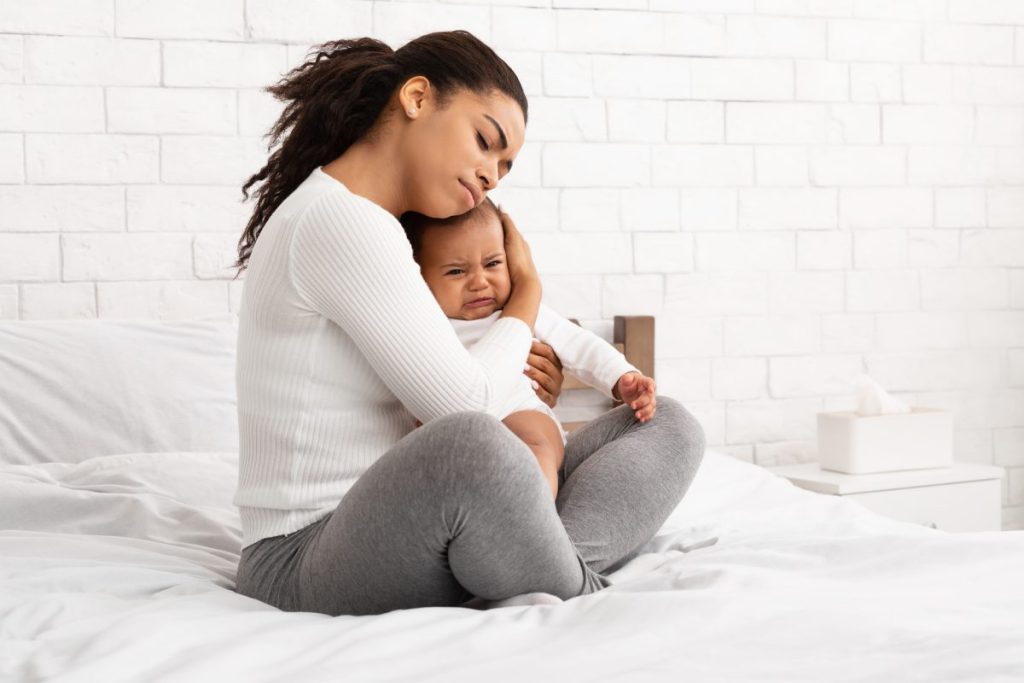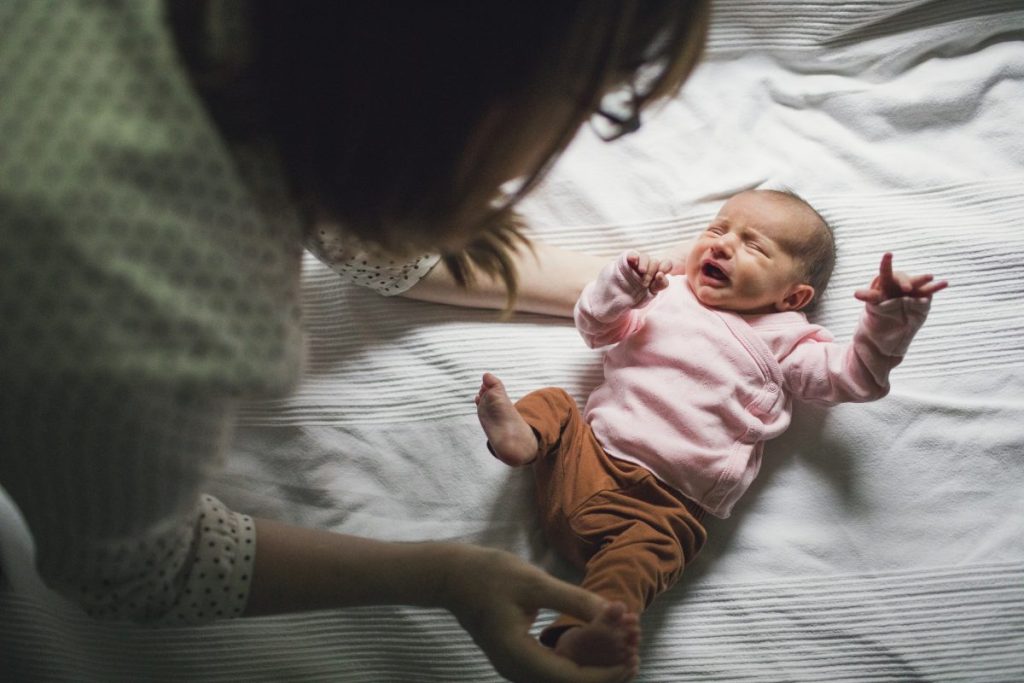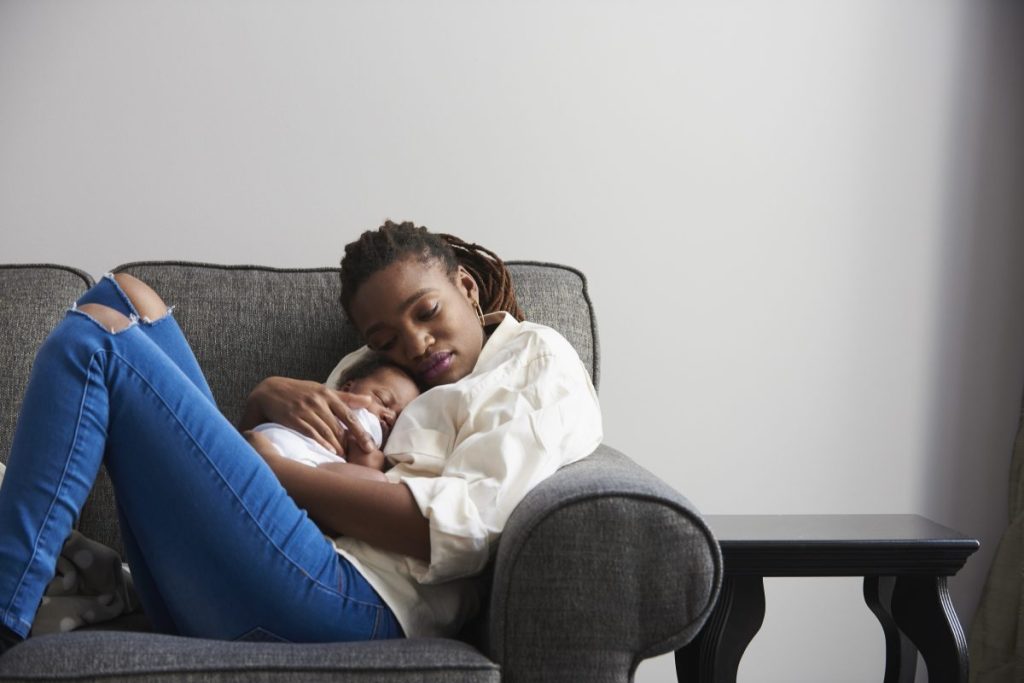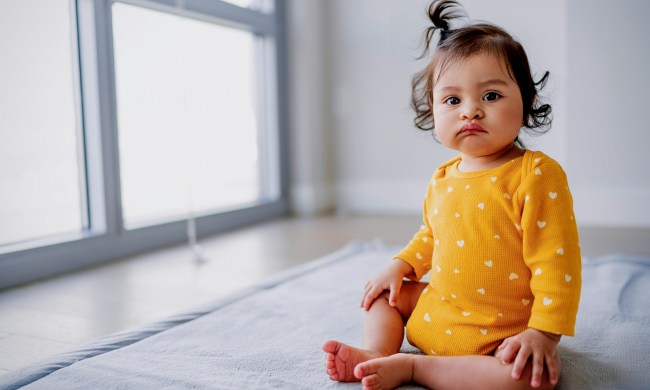Babies mean lots of cuddles and that addicting baby head smell. But they also mean a lot of sleepless nights for everyone involved. It doesn’t matter if it’s one fussy night or a bad week, there are many reasons your baby keeps everyone up crying at night. Sometimes it’s as simple as their pacifier falling out before they’re in that deep sleep cycle. Other times, it takes a bit of going down the checklist to see why your baby is crying in their sleep.
Whether your little one normally snoozes soundly or seems to be having a few cranky nights, soothing a crying baby is a good skill for every parent to have. We’ll help you comfort those nighttime baby cries and help everybody get back to sleep.

Proper sleeping procedures
We won’t get into all the sleep rules and regulations specifically, but we want to point out that it’s important that every parent knows they exist. If you have a baby that isn’t sleeping properly or is starting to wake up constantly crying in the middle of the night, revisiting these tips is a perfect place to start. Doctor Maya Bunik, the medical director of the Children’s Hospital in Colorado, says that for a “baby to sleep as much as possible, making sure they are safe is the top priority.”

Why a baby cries during sleep
Let’s go over some of the main reasons your tiny human wants everyone to know they can’t sleep.
They’re hungry
Babies have tiny stomachs and need to eat all the time. If your little one cries in the night, it could be for a midnight snack.
They’re having a night terror
Baby night terrors aren’t as cute as they sound. Your baby will scream and thrash around in their sleep during an episode, but you don’t want to wake them during a sleep terror, as it leads to confusion and disorientation.
They are too cold or too hot
Just like you feel miserable when the temperature in the room isn’t right, your baby will cry to let you know they aren’t comfortable either.
They are sick
You can’t get a good night’s rest when you are sick, and neither will your baby.
They’re teething
Teething babies have the worst time staying asleep. You can’t blame your tiny tot for crying when they’re cutting teeth.
It’s the only way they know how to talk
Your baby can’t talk to you yet to tell you what’s wrong. They have to get your attention somehow. For them, crying is the only mode of communication they have to work with.
They lost their comfort item
If your baby hasn’t hit that deep cycle of sleep yet and their pacifier falls out, they’ll cry right back awake.
They farted or pooped
Laugh all you want, but you know you have woken yourself up in the middle of the night with a bodily function before.

What to do to soothe a crying baby
The trick is to keep things gentle and soothing. You don’t want to pick up the baby if possible, so you don’t have to start the whole bedtime process over again. We all know that leads to a 2 am hang fest that lasts for hours.
Try these tips:
- Gentle patting/rubbing of the back or tummy
- White noise
- Soft singing
- Nurse the baby
Gentle rubbing and patting will soothe your baby back down. Just a little light pressure is all the comfort a baby needs to go back to sleep. White noise machines, the ceiling fan, or other gentle noisemakers help your baby drift back to sleep. Try singing your baby’s favorite song softly to them a few times. Babies who breastfeed often find comfort in a nighttime nursing session, but you have to be careful about completely waking that babe up.
Find what works best for your baby. Some babies love one specific type of comfort, and some babies want a new one every time they are fussy. It’s all about finding what your baby wants to be soothed to get back to sleep so you can, too.

It’s OK to be concerned
If you have tried everything and still cannot figure out why your child is crying at night, don’t hesitate to make an appointment with your pediatrician. It’s always better to get your child checked out, as some patterns of sleeplessness are could mean something more serious. Never apologize for being your child’s advocate. Pediatrician Noah Schwartz says, “always feel free to check in with your pediatrician if something doesn’t seem right to you.”
Sometimes parents, in a sleep-deprived state, miss small things they could try and your doctor could help point these things out. It’s never a waste of time to have your child checked. It doesn’t matter if it’s your first baby or fourth, new and different things happen with every kid.
Know you are not alone and there are parents everywhere, waking up to baby cries in their sleep right alongside you. But also know we want nothing more than for everyone to have a peaceful night. So don’t be too hard on yourself while you and your baby figure out the best way for everyone to get a quiet night’s sleep.



